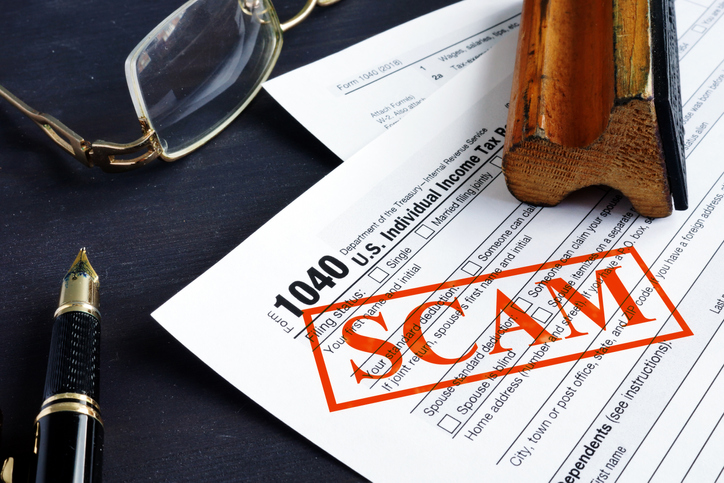Tax season is here, and with it comes a variety of scams designed to get your money or personal information. As you’re preparing to file, here are common scams to watch for.
Phone calls from the IRS
Like representatives from Medicare or Social Security, representatives from the IRS aren’t going to call you. If the organization needs to contact you, you’ll likely get a letter. However, if you’ve received several letters and not taken action, then the IRS may call or visit you. But if you receive a call from someone claiming to be from the IRS and you haven’t received a letter from the organization, hang up.
If the IRS does contact you, they won’t ask you to pay an obligation with a prepaid debit card or gift card. Nor will it threaten to deport you, call the police on you, suspend your driver’s license, suspend your social security number or send you to jail. If you need to make payments on your taxes, the IRS will direct you to make payments to the United States Treasury.
Ghost tax preparers
A professional tax preparer will have a 2019 Preparer Tax Identification Number (PTIN). Professional tax preparers will sign your tax return and include their PTIN. As the name suggests, ghost tax preparers don’t sign the return. Instead, they’ll print it and tell you to sign it and mail it to the IRS or if you filed digitally, they won’t digitally sign it.
Ghost tax preparers may also:
- Require payment in cash only and not give a receipt
- Invent income to erroneously qualify you for tax credits or claim fake deductions to boost refunds
- Direct refunds into their own bank account rather than your account
The IRS suggests you review your tax return carefully and ask questions if something is not clear.
Social Security scams
If someone gets their hands on your Social Security number, they can illegally file a return and seek a refund. Most of the time, you’ll only discover this when you go to file your return and it’s sent back from the IRS. If you receive a letter from the IRS saying your return has already been filed, and you haven’t filed it, call the number on the letter.
Know who to report to
If you think you’ve been a victim of IRS scam or tax fraud, report it to the IRS. You can do so here.









